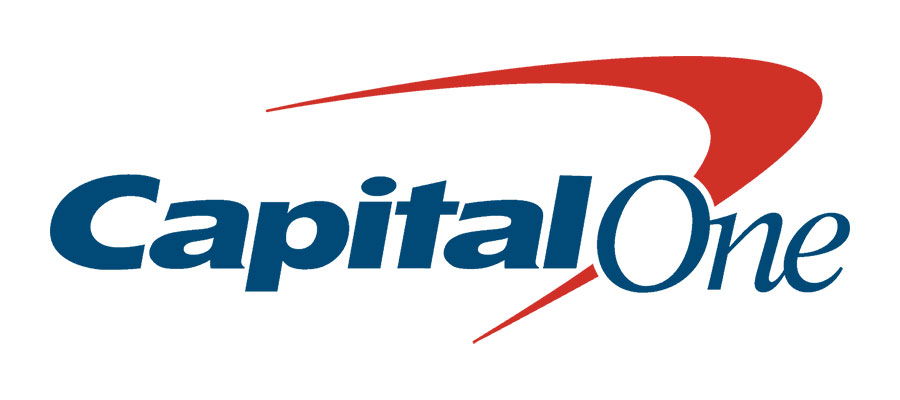Defaulting on a car loan can set off a chain of problems fast. Your lender can repossess your vehicle, your credit score can take a major hit, and you may even face a lawsuit if the balance is not paid.

Many people fall behind because of job loss, medical bills, or unexpected expenses. Whatever the reason, defaulting on a car loan doesn’t have to define your financial future. You still have options to limit the damage, protect your budget, and work toward rebuilding your credit score.
This guide explains what happens when you default on a car loan, the steps lenders can take, and what you can do right now to protect yourself and start recovering.
Key Takeaways
- Defaulting on a car loan can cause serious consequences, including a lower credit score, car repossession, and possible legal action.
- If you’re having trouble making payments, reach out to your lender about new payment options, loan modifications, or refinancing.
- To recover, focus on improving your credit score, building a realistic budget, and setting up an emergency fund for future stability.
What Happens When You Default on a Car Loan
Defaulting on any loan can set off serious financial and legal consequences. With a car loan, the risks include damage to your credit score, losing your vehicle, and even being sued for unpaid debt. A single missed payment may not trigger default immediately, but falling behind can create a chain of problems that build quickly.
Typical Timeline of a Car Loan Default
- 30 days late: Your lender reports the missed payment to the credit bureaus, and your credit score begins to drop.
- 60 days late: Late fees increase, collection calls may intensify, and repossession risk starts rising.
- 90 days late: Many lenders initiate repossession at this point, though some act sooner depending on the loan agreement.
- After repossession: The car is sold at auction, and you may still owe a deficiency balance if the sale doesn’t cover the loan.
- Ongoing: If unpaid, the lender may turn the balance over to collections or take legal action.
How Defaulting Affects Your Credit Score
The first sign of trouble usually shows up on your credit report. When you miss a car loan payment, your lender reports it to the three major credit bureaus. Each late payment lowers your credit score, and the damage gets worse the longer the account remains unpaid.
Late payments, defaults, and repossessions can all stay on your credit report for up to seven years. Even one missed payment can cause a noticeable drop, while a full default can make it much harder to qualify for future loans, credit cards, or even rental housing. Rebuilding from this point takes time and consistent positive payment history.
How Soon Can a Lender Repossess Your Car?
Repossession is often the most immediate risk after falling behind on a car loan. Many auto loan agreements allow the lender to repossess a car after just one missed payment, though some lenders may wait until you are 60 or 90 days late.
Once the car is repossessed, the lender typically sells it at auction. Because auction prices are usually much lower than retail value, the sale rarely covers the entire loan balance. This gap is what creates a deficiency balance.
State Laws on Repossession
The exact rules vary depending on where you live. Some states allow lenders to repossess a car without advance notice, while others require written warning or give borrowers a chance to bring the loan current.
State laws also dictate how lenders can repossess the vehicle—for example, they cannot breach the peace or enter a locked garage without permission. It’s important to check your state’s repossession laws to understand your specific rights.
What Is a Deficiency Balance After Repossession?
A deficiency balance is the difference between what you still owe on your loan and what the lender recovers by selling the repossessed vehicle. For example, if you owe $12,000 and the car sells for $8,000, you remain responsible for the $4,000 shortfall.
Lenders almost always try to collect this balance. They may turn it over to a collection agency, offer a payment plan, or pursue legal action. In some cases, you can negotiate a reduced settlement, but ignoring the debt usually makes the situation worse.
Legal Consequences of Car Loan Default
If a deficiency balance goes unpaid, your lender has the right to sue for the amount owed. If the court rules in the lender’s favor, they may garnish your wages, freeze funds in your bank account, or place liens on property.
Even without a lawsuit, lenders can send the balance to a collection agency. This creates more negative entries on your credit report and adds to financial stress. The longer the debt remains unresolved, the more difficult it becomes to recover.
How to Avoid Car Loan Default
Falling behind on a car loan can feel overwhelming, but you still have options. Taking action early can prevent repossession, protect your credit score, and give you more breathing room in your budget. Here are some practical steps that may help:
Talk to Your Lender Early
If you know you’re going to miss a payment, call your lender before it happens. Most lenders would rather work with you than deal with repossession. Be upfront about your situation and ask about solutions like reduced payments, payment extensions, or temporary hardship programs.
Ask About Loan Modification
Some lenders offer loan modification programs that adjust the terms of your auto loan. This could mean lowering your interest rate, stretching out the repayment period, or deferring a few payments. Not every lender offers this option, but it’s worth asking.
Look Into Debt Consolidation
If your car loan is just one of many debts, a debt consolidation loan might make payments easier. With consolidation, you combine multiple debts into one loan—ideally with a lower interest rate. This can simplify your finances and potentially lower your monthly payment, though it may also extend your repayment period.
Get Free Help From Credit Counselors
Non-profit credit counseling agencies can review your budget, talk through repayment options, and even help you negotiate with lenders. These services are often free or low-cost and can give you an outside perspective on the best path forward.
Consider Refinancing Your Car Loan
Refinancing replaces your current loan with a new one that has better terms. If your credit is still in decent shape, you may qualify for a lower interest rate or a longer repayment term, reducing your monthly payment. However, if your credit score has already dropped from missed payments, refinancing may be harder to qualify for.
Sell the Car Before Repossession
If keeping the car no longer makes financial sense, selling it yourself can be smarter than letting the lender repossess it. If the sale covers your loan balance, you can walk away debt-free. If the car sells for less than what you owe, you’ll still be responsible for the difference, but selling often leaves you in a better position than an auction sale after repossession.
Steps to Rebuild After Defaulting on a Car Loan
Defaulting on a car loan hurts, but it doesn’t have to define your financial future. With patience and the right strategy, you can rebuild your credit, strengthen your finances, and put yourself in a better position for future borrowing.
Repair Your Credit Score
Missed payments and repossession stay on your credit report for years, but you can still recover. The most effective step is to make every payment on time moving forward—whether it’s a credit card, personal loan, or utility bill.
Over time, consistent on-time payments rebuild your payment history and gradually improve your credit score. Adding new positive accounts, like a secured credit card or credit-builder loan, can also help offset past damage.
Create a Budget You Can Stick To
A realistic budget keeps you from falling behind again. Track your income, essential bills, and discretionary spending. Make sure your plan leaves space for savings and unexpected costs so you’re not forced into debt when emergencies come up.
Build an Emergency Fund
An emergency fund is your financial safety net. Even setting aside $25–$50 a paycheck can add up over time. Aim for three to six months’ worth of living expenses, but don’t let the big goal discourage you—getting started is what matters most.
Approach New Loans With Caution
After a default, borrowing again requires extra care. Always read loan terms closely, paying attention to interest rates and repayment periods. Credit unions often provide better rates and more flexible approval standards than large banks.
If you need another vehicle, look for lenders or car dealerships that specialize in helping borrowers with damaged credit—but only take on a loan you know you can afford.
Final Thoughts
Defaulting on a car loan is stressful, but it doesn’t mean your financial future is over. While repossession, credit score damage, and legal action are real risks, you also have options to limit the fallout and start moving forward.
The most important steps are acting quickly, staying in contact with your lender, and making choices that protect your budget long term. From negotiating payment terms to exploring refinancing or even selling the car, taking action now can prevent bigger problems later.
Recovery takes time, but it’s absolutely possible. By focusing on rebuilding your credit, setting a realistic budget, and building a safety net, you can turn this setback into a turning point toward stronger financial stability.
Frequently Asked Questions
Can I trade in my car if I still owe on the loan?
Yes, you can trade in your car while you still owe money on the loan. If your car’s trade-in value is higher than your loan balance, the difference can go toward your next vehicle. If it’s worth less than what you owe, the remaining balance—known as negative equity—will still be your responsibility, and it may get rolled into your new loan.
How can I remove a repossession from my credit report?
If it’s being accurately reported, it can be challenging to remove a repossession from your credit report. Repossessions generally stay on your credit report for up to seven years.
However, if there are mistakes—such as incorrect dates, balances, or payment history—you can dispute those errors with the credit bureaus. Removing inaccurate information is the only way to eliminate a valid repossession before it naturally drops off.
Can I refinance my car loan with bad credit?
Refinancing with bad credit is possible but can be more difficult. Lenders typically want to see a strong credit history, but if your credit score has improved since you first took out the loan, you may still qualify. Some credit unions and specialized lenders work with borrowers who have lower credit scores, though the interest rates may be higher than average.
Will filing for bankruptcy discharge my car loan?
Bankruptcy can affect car loans differently depending on the type you file. In Chapter 7 bankruptcy, your obligation to pay the remaining balance may be discharged, but the lender is still allowed to repossess the vehicle.
You may also choose to reaffirm the debt and keep making payments to retain the car. In Chapter 13 bankruptcy, your car loan can be included in your repayment plan, which lasts three to five years. This may allow you to restructure your loan, reduce your payments, or lower your interest rate. Once the plan is complete, any remaining balance might be discharged.
How many payments can I miss before repossession?
The number of missed payments allowed before repossession depends on your loan agreement and state laws. Some lenders can legally repossess your car after just one missed payment, while others may wait 60 or 90 days. Because the timeline varies, it’s important to read your loan contract and understand your state’s repossession laws.




